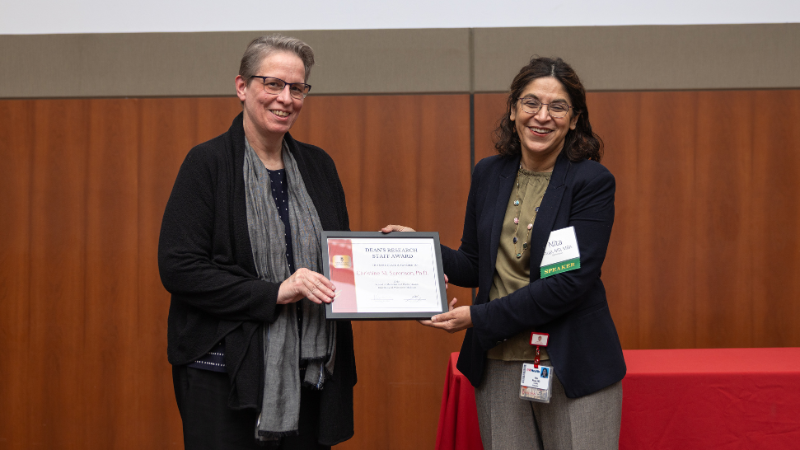
In the photo: Dean’s Research Staff Award Winner Christine Sorenson, PhD, (left) receives award from Dean Nita Ahuja, MD, MBD, (right). Photo by Sirtaj S. Grewal/SMPH Media Solutiuons
Research lies at the heart of the Department of Pediatrics’ mission to improve children’s health through cutting-edge research. In fiscal year 2025, department faculty and researchers received nearly $42 million in research support, 65% of which came from the National Institutes of Health (NIH). These investments reflect the department’s dedication to advancing discovery and innovation in pediatric medicine.
Behind every grant, study, and breakthrough is a team of people who make research possible. The department’s 167 research staff and trainees contributed to the 161 unique projects active in fiscal year 2025. Their curiosity and collaboration drive the science that shapes the future of health care.
“Research staff are essential to our success: their expertise, dedication, and genuine passion for making a difference are what turn ideas into real-world impact,” said Kim Stevenson, associate department administrator, academic operations. “They’re part of every step in the process — whether recruiting participants, processing samples, or compiling data for a publication. We’re incredibly grateful for everything they do to move pediatric research forward and improve the lives of children and families.”
This year, the University of Wisconsin School of Medicine and Public Health is recognizing the lasting impact of research staff with the Dean’s Research Staff Awards, which honor the outstanding contributions of research staff working in laboratories across the school. This inaugural award was given to four research staff members selected by a subcommittee of the Basic Sciences Strategic Leadership Committee. Dean Nita Ahuja presented the awards to the winners on November 7 during the SMPH Collaborate event.
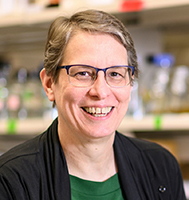
Our very own research staff member, Christine Sorenson, PhD, distinguished scientist III, Division of Neonatology and Newborn Nursery, was one of the four award winners. Sorenson is the principal investigator of her own research group, which studies the apoptotic and non-apoptotic roles of Bcl-2 family members during developmental and pathologic vascularization, particularly in the eye. Discoveries from this research provide insights into fundamental biology and lay the groundwork for improved treatments for blindness. Sorenson is also a member of the McPherson Eye Research Institute, where she bridges pediatrics, ophthalmology, and neuroscience.
With 140 peer-reviewed publications, an h-index above 50, and over 11,000 citations, Sorenson has established herself and the UW as leaders in ocular vascular biology.
“From my perspective, Sorenson is the kind of colleague who makes others better. She asks sharp scientific questions, approaches challenges with persistence, and collaborates with openness and respect,” wrote Ryan McAdams, MD, professor, Divisions of Neonatology and Newborn Nursery and Global Pediatrics, in Sorenson’s nomination.
The department nominated five other research staff members for their own achievements. In celebration of research staff members across the department, we encourage you to read more about each nominee, as well as short excerpts from their nomination packets.
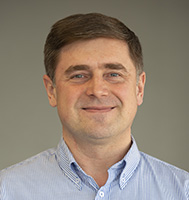 Yury Bochkov, PhD, senior scientist III, Division of Allergy, Immunology, and Rheumatology
Yury Bochkov, PhD, senior scientist III, Division of Allergy, Immunology, and Rheumatology
Bochkov is a member of the Gern Research Group. His current research focuses on molecular biology and immunology of human rhinovirus species C (RV-C), a respiratory pathogen associated with childhood wheezing.
James (Jim) Gern, MD, professor, vice chair of research, Division of Allergy, Immunology, and Rheumatology, wrote the following in Bochkov’s nomination packet:
“Bochkov is internationally recognized for his outstanding contributions to rhinovirus molecular virology. To support the broader research community, he has shared diagnostic assays and research materials – including virus isolates, infectious cDNA clones, reporter-expressing viruses, and transduced cell lines with over 90 researchers from UW–Madison and other institutions across the U.S. and internationally.”
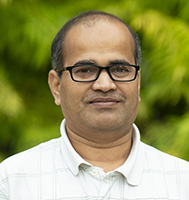 Chandramu Chetty, PhD, MB (ASCP), scientist II, Division of Pulmonology and Sleep Medicine
Chandramu Chetty, PhD, MB (ASCP), scientist II, Division of Pulmonology and Sleep Medicine
Chetty is a member of the Levy Research Group. His work advances understanding of monocyte-driven neutrophil reprogramming in cystic fibrosis by integrating endothelial biology with high-resolution immune cell analyses.
Sharon Bartosh, MD, professor, nephrology chief, pulmonology and sleep medicine interim chief, Divisions of Nephrology and Pulmonology and Sleep Medicine, wrote in Chetty’s nomination packet:
“Chetty’s career reflects a remarkable commitment to continuous learning, professional development, and the highest standards of research rigor. He has consistently improved the quality and breadth of research within the laboratory and has strengthened SMPH’s position in lung vascular biology by developing unique technical and conceptual strengths.”
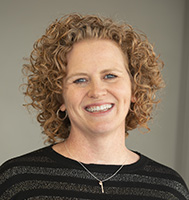 Amy Dresen, laboratory manager, Division of Allergy, Immunology, and Rheumatology
Amy Dresen, laboratory manager, Division of Allergy, Immunology, and Rheumatology
Dresen is a member of the Gern and Singh Research Groups. Currently, she is the laboratory manager for the Morris Institute for Reparatory Research, where she trains and orients students, oversees and maintains biosafety protocols, and supervises laboratory personnel working on several protocols.
James (Jim) Gern, MD, professor, vice chair of research, Division of Allergy, Immunology, and Rheumatology, wrote the following in Dresen’s nomination packet:
“Dresen is genuinely an exceptional researcher and laboratory manager who has made numerous contributions to the success of the Allergy and Asthma translational research programs across the Departments of Pediatrics and Medicine.”
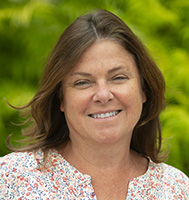 Gemma Warner, MSW, CCRC, senior project manager I, Division of Hospital Medicine and Complex Care.
Gemma Warner, MSW, CCRC, senior project manager I, Division of Hospital Medicine and Complex Care.
Warner is a member of the Hospital Medicine and Complex Care Research Program. Warner oversees every aspect of the program’s operations. She has been central to the successful conduct of 28 federally funded and foundation-supported multi-site clinical trials and studies totaling over $18 million.
Division of Hospital Medicine and Complex Care faculty members, Ryan Coller, MD, MPH, associate professor, division chief, Michelle Kelly, MD, PhD, professor, Brian Williams, MD, associate professor, and Heidi Kloster, MD, associate professor, associate residency program director, wrote the following in Warner’s nomination packet:
“Warner is the person that everyone turns to first – the architect of the systems that sustain our work and the growth-minded, trusted face of our program for children with medical complexity and their families.”
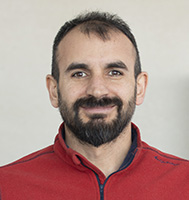 Sefer Yapici, research specialist, Division of Critical Care
Sefer Yapici, research specialist, Division of Critical Care
Yapici is a member of the Cengiz Research Group. His most important responsibility is the performance of time-sensitive neonatal hypoxia-ischemia surgeries that are conducted at postnatal day nine.
Pelin Cengiz, MD, professor, Division of Critical Care, wrote the following in Yapici’s nomination packet:
“Sefer has become the backbone of our lab – an indispensable member whose expertise, leadership, and selfless dedication have transformed the way we conduct research. His extraordinary technical skills, innovative contributions, and unwavering commitment extend far beyond his job description, strengthening not only our research program but also the broader mission of UW–Madison to advance discovery, foster education, and serve the public good.”